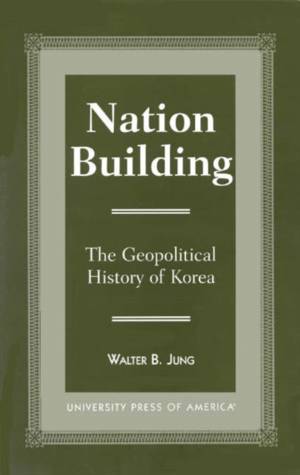
- Afhalen na 1 uur in een winkel met voorraad
- Gratis thuislevering in België vanaf € 30
- Ruim aanbod met 7 miljoen producten
- Afhalen na 1 uur in een winkel met voorraad
- Gratis thuislevering in België vanaf € 30
- Ruim aanbod met 7 miljoen producten
Zoeken
€ 124,45
+ 248 punten
Uitvoering
Omschrijving
Nation Building: The Geopolitical History of Korea provides a history of Korea from a geopolitical perspective, emphasizing Korea's relations with China, Japan, Russia, and the United States. The author presents fresh, up-to-date views on the development of Korea. He begins with the founding of Korea and depicts the nature of the Koryo Dynasty and the Northern Tribes, the Chosun Society and the Confucian Heritage of Korea through the beginning of Western influence on the country. Emphasis moves to the period of Japan's domination of Korea and eventually to the effects of the US-USSR rivalry on their relationships with Korea. The author relates the Korean War as a civil international conflict and lays out the effects of the war. The conclusion discusses the economic development within Korea and the changes in relations with the country.
Specificaties
Betrokkenen
- Auteur(s):
- Uitgeverij:
Inhoud
- Aantal bladzijden:
- 384
- Taal:
- Engels
Eigenschappen
- Productcode (EAN):
- 9780761812739
- Verschijningsdatum:
- 24/11/1998
- Uitvoering:
- Hardcover
- Formaat:
- Genaaid
- Afmetingen:
- 157 mm x 235 mm
- Gewicht:
- 662 g

Alleen bij Standaard Boekhandel
+ 248 punten op je klantenkaart van Standaard Boekhandel
Beoordelingen
We publiceren alleen reviews die voldoen aan de voorwaarden voor reviews. Bekijk onze voorwaarden voor reviews.











